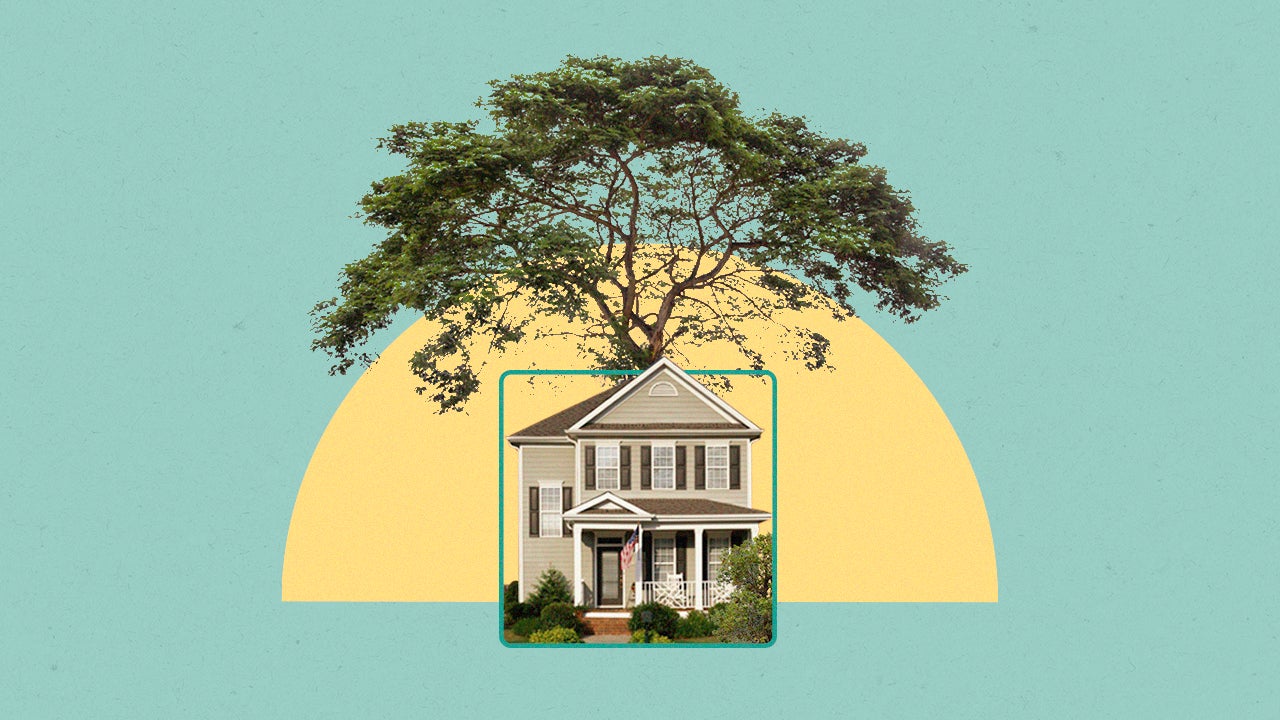Should I sell my house now or wait?

Key takeaways
- Historically, late spring and early summer have generally been considered the best times to sell a house.
- Home prices are high right now, which is obviously good for sellers, but mortgage rates are on the high side as well, which means fewer buyers can afford the purchase.
- Fannie Mae’s Home Purchase Sentiment Index shows that, in June, 60 percent of consumers felt it was a good time to sell. However, only 28 percent felt it was a good time to buy.
If you’re considering selling your home, it’s critical to understand the current real estate market dynamics. The volatility that dominated the market amid pandemic-related pressures may have eased, but there are still serious challenges.
For one thing, mortgage interest rates are still high. While they have backed down from the 8 percent threshold reached in late 2023 — a level not seen in more than 20 years — Bankrate’s weekly survey of large national lenders shows that, as of early June, the average 30-year fixed mortgage rate was still only slightly below 7 percent. This makes mortgage payments more expensive and keeps more than a few potential buyers on the sidelines — certainly not ideal if you’re on the selling side of the equation.
Complicating things further, home prices just keep rising and rising. A year ago, in June 2024, the nationwide median sale price broke a record at $426,900, the highest monthly median the National Association of Realtors has ever recorded. May 2025’s median of $422,800 was not too far off that and represented a whopping 23 straight months of annual price increases.
While high prices are typically good news for sellers, they obviously require buyers who can afford the purchase, and interest rates are making that harder. In addition, talk of a possible recession has been on the rise. So, amid these decidedly mixed signals, is now a good time to sell your house? Here are some insights to help you sort through the question.
Should I sell my house now?
If popular opinion is any guide, now may still be a good time to sell despite the evolving market. According to Fannie Mae’s June 2025 Home Purchase Sentiment Index, more than half of respondents — 60 percent — feel it is a good time to sell.
Local market dynamics also play a large part in whether it’s a good or bad time to sell, says Katie Severance, a Realtor with Douglas Elliman in Palm Beach, Florida, and author of “The Brilliant Home Buyer.” Some markets may be riding high, while others remain sluggish.
“It’s all geographically driven,” says Severance. “In some areas, selling now is the right thing to do because prices are still climbing. In other markets, it might be best to wait to sell until interest rates come down and stay down, which will spur sales once again.”
When is a good time to sell a house?
Historically, spring and summer are usually the best times of year to sell a house. But beyond seasonality, there are many factors that might make selling your home a wise decision. Often the reasons are based on financial calculations, cost of living expenses and other considerations, but there may also be other factors that make selling your home the right choice. These include:
| If rates are low | This is not the case currently, but low interest rates entice more prospective buyers to enter the market, which is advantageous for sellers. An increased number of buyers shopping for homes often leads to bidding wars and drives up home prices. |
| If supply is short | A shortage of housing inventory — which was the case for the past several years, though it’s now improving — also drives up demand and prices for available homes. What’s more, when housing supply is low, the few homes that are on the market tend to sell faster. |
| If you’re ready to downsize | Downsizing may be a more budget-friendly choice than continuing to maintain a larger, costlier home. For aging homeowners, downsizing may even be a necessity: “If you can’t handle the stairs anymore, it may be a good time to sell,” says Rick Albert, a broker and director of business development for Lamerica Real Estate in Los Angeles. |
| If you need to relocate | If you’re relocating to a new state for a job or want to enjoy your retirement in a new area, and you need the profits from the sale to put toward your next place, selling may be unavoidable. “The time to sell is when you need to sell,” says Severance. “It’s a no-brainer to sell if you have somewhere to go.” |
When is it better to wait?
Here are some common factors that might make prospective sellers hold off on listing their home for sale:
| If rates are rising | Rising mortgage interest rates often mean a smaller pool of buyers who can afford the price you want. Selling a home isn’t free, so if you can’t maximize your price, you might want to wait. |
| If you’ve recently refinanced | If you recently refinanced your mortgage, it may not make financial sense to sell just yet. You may actually lose money by doing so, when considering the closing costs and other fees typically paid as part of the refinancing process. |
| If you’re upsizing | The cost to purchase a new, bigger home may be unaffordable, particularly in a hot market. Don’t get in over your head — take the time to be sure your finances can accommodate the type of home you want. Bankrate’s home-affordability calculator can help you crunch the numbers. |
| If your home is in poor condition | Got a long list of repairs waiting to be completed around your home? You may want to postpone selling until some of the work can be done. It’s important to show your home in its best light in order to land the most favorable offer possible. |
| If you have no game plan | If you’re simply trying to time the market to make a profit and have no plan for after your home is sold, it’s probably best to hold off. “It doesn’t make sense to sell if you don’t know what your next play is,” says Albert. “Where are you going? Where is that money going to be spent? If you don’t have a plan, then you shouldn’t sell.” |
What if there’s a recession?
With the odds of a recession rising, according to experts, it’s worth asking: Should you sell your house during an economic downturn? Or even just before one hits?
The answer really depends on your personal circumstances. “If you’re concerned a recession is coming, it’s generally better to sell now instead of waiting,” says Jade Lee-Duffy, a San Diego–area Realtor. However, “selling during a recession might be beneficial if you’re looking to downsize or rent. This could cut your overall costs, and you could put the proceeds into a retirement account, go on vacation or invest.”
Remember, recessions typically bring with them job losses and belt tightening, which can severely limit the number of house-hunters looking to buy. More buyers will be able to afford a home, and qualify for a mortgage, before a recession than after.
Tips to sell your home
If your answer to “should I sell my house now?” is yes, here are some steps you can take to get the best deal possible.
- Find a good local agent: Advice and guidance from a professional real estate agent can be invaluable, particularly amid a hot or unpredictable housing market. Take the time to interview several candidates in your area, and ask friends or family members to recommend agents they’ve had a good experience with. “An agent can help you create a game plan to get your home organized and in shape to present it in the most favorable light,” says Jen Horner, a Realtor with Masters Utah Real Estate.
- Make repairs if needed: To land the best offer for your home, know what needs fixing first. “Sellers only have one chance to make a first impression,” Horner says. “Your agent can walk the property with you and make suggestions for preparing your home to hit the market.”
- Declutter and stage the interior: You should also make an effort to tidy up, allowing prospective buyers to see the home clearly. “Less is always more,” she says. “The fewer items in a room, the larger it will feel. Remove any personal items and unnecessary furniture.” If tidying is not enough, consider hiring a home stager. “Staging can help show the buyer how to optimize the space.”
- Add curb appeal: Your home’s exterior is a big part of making a good first impression, and it’s worth freshening up the curb appeal before buyers see it. That can include upgrading landscaping and walkways, or even something as simple as a fresh coat of paint on the front door.
- Or, consider an alternative method of selling: If you need to sell your home quickly or aren’t interested in a traditional sale, iBuyers and cash-homebuying companies may be worth looking into. These companies typically make speedy offers on homes — often within 24 hours — and can complete the entire transaction within a few weeks or less. There is one major downside, though: While you gain speed and convenience when you sell to these companies, you sacrifice profit. They usually offer much less money for your home than you might get through a traditional sale.
Bottom line
Deciding to sell your home, whether now or later, is a major decision that requires careful consideration. Your future plans and goals should be a significant part of the equation, as well as your financial needs and the realities of the local market in your area. If you decide to proceed with listing your home, working with an experienced real estate agent who knows your community well can increase your chances of a smooth — and lucrative — sale.
FAQs
Why we ask for feedback Your feedback helps us improve our content and services. It takes less than a minute to complete.
Your responses are anonymous and will only be used for improving our website.






